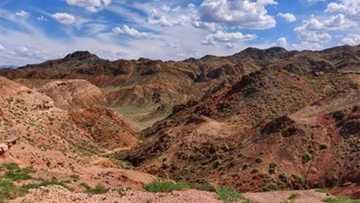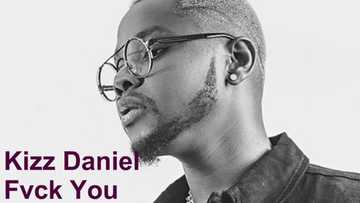Igbo calendar 2018: festivals and holidays
Let’s talk about the Igbo calendar. What is it? How is it different from the calendar most of us are used to? What Igbo festivals and holidays does it contain? Find out about this and so much more in this article.
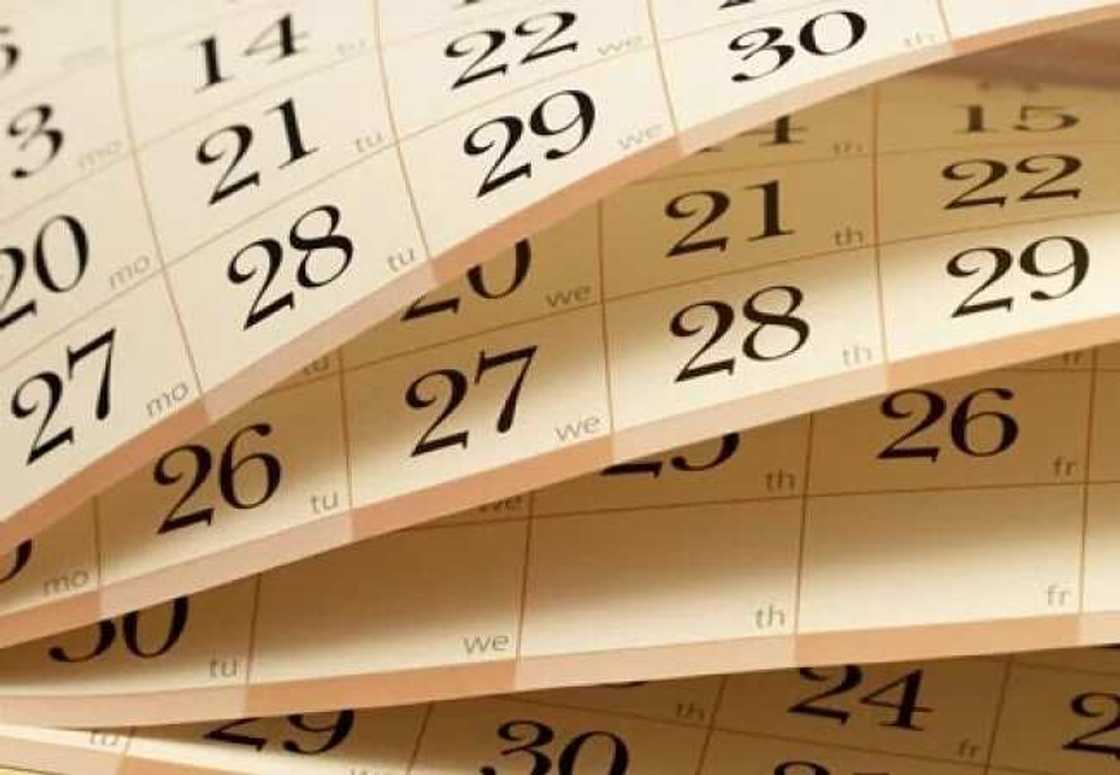
Igbo traditional calendar
In case you do not know, Igbos have their own calendar, which is very different from the widely used Gregorian calendar. You might not be aware of it, as it is not universal, and not all Igbos use it, and the ones who do, often disagree on what month or day it is, yet, it still serves as an important tool for Igbo people.
What makes the Igbo calendar so special is that it has only four days in a week (izu), seven weeks in a month (onwa) and thirteen months in a year (afo). By the end of each year, an extra day is added. The Igbo name for their calendar is Oguafor/Oguaro, which literally translates as counting of the years.
Every part of the calendar has its own special meaning. For instance, each of the four days (also known as market days) is named after the spirit that governs it. The days also correspond with the four cardinal directions. Thus, afo/aho correlates with north, nkwo with south, eke with east and orie/oye with west.
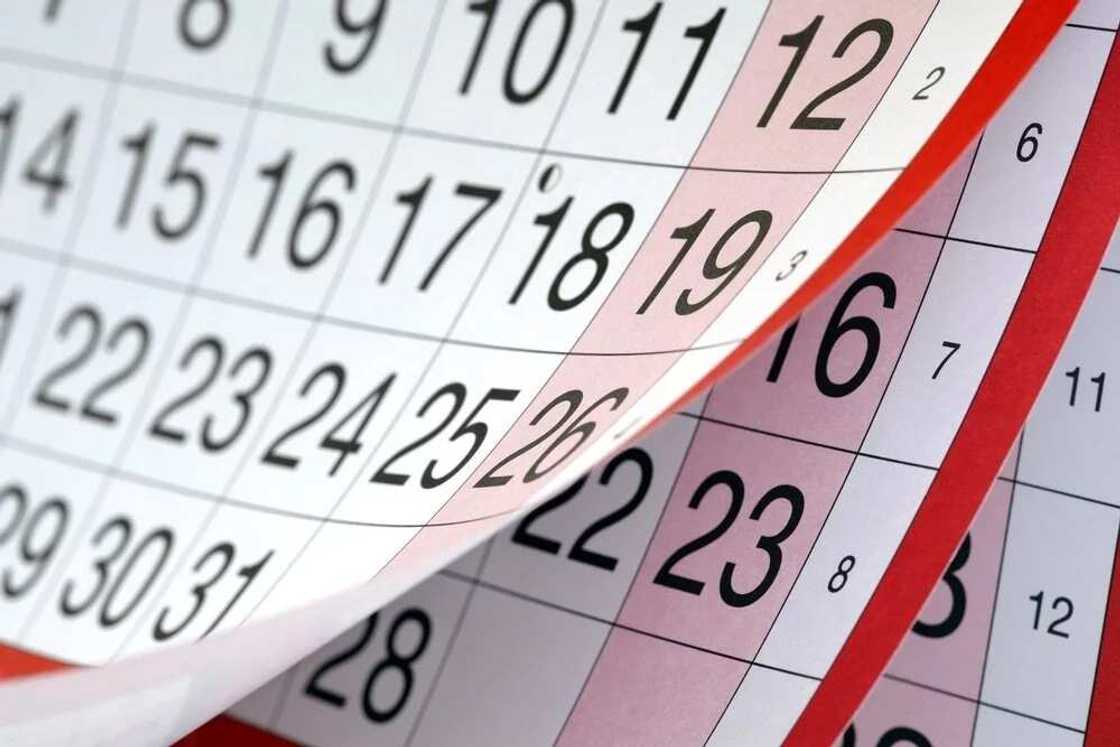
You might be wondering:
Why are they called market days? Well, it is because the calendar is not only built on honouring the spirits, but also on commerce. Each community in Igboland has their own dedicated market days. That is why you can find an Eke market or an Afor market to this day. It is said that market days were established as early as first millennium AD by Eri, a legendary ruler, who (according to legend) was sent by God himself.
If you are looking for a way to see what Igbo market day it is, you can use this very convenient website: igbocalendar.com. It features a regular Gregorian calendar that has been modified to fit the four-day Igbo calendar. That way, you can easily keep track of the Igbo market days in 2018.
Months in the Igbo calendar
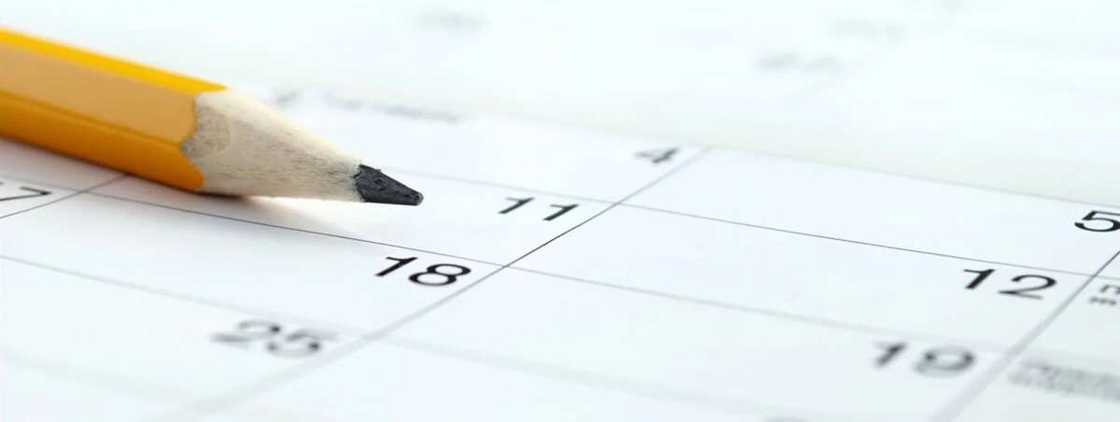
We feel like the months of the Igbo calendar deserve special attention, as each month has its own meaning. Let’s talk about each of them a little bit more in detail. We will be using the Nri-Igbo calendar as reference, so do not be surprised if you come across information that differs from what we are going to tell you.
The first month of the Igbo calendar is Ọnwạ Mbụ. It usually starts around the third week of February with the Igu Aro festival, which is meant to celebrate the beginning of the year.
The second month is called Ọnwạ Abuọ, and it lasts from mid-March until mid-April. This month is for farming and cleaning.
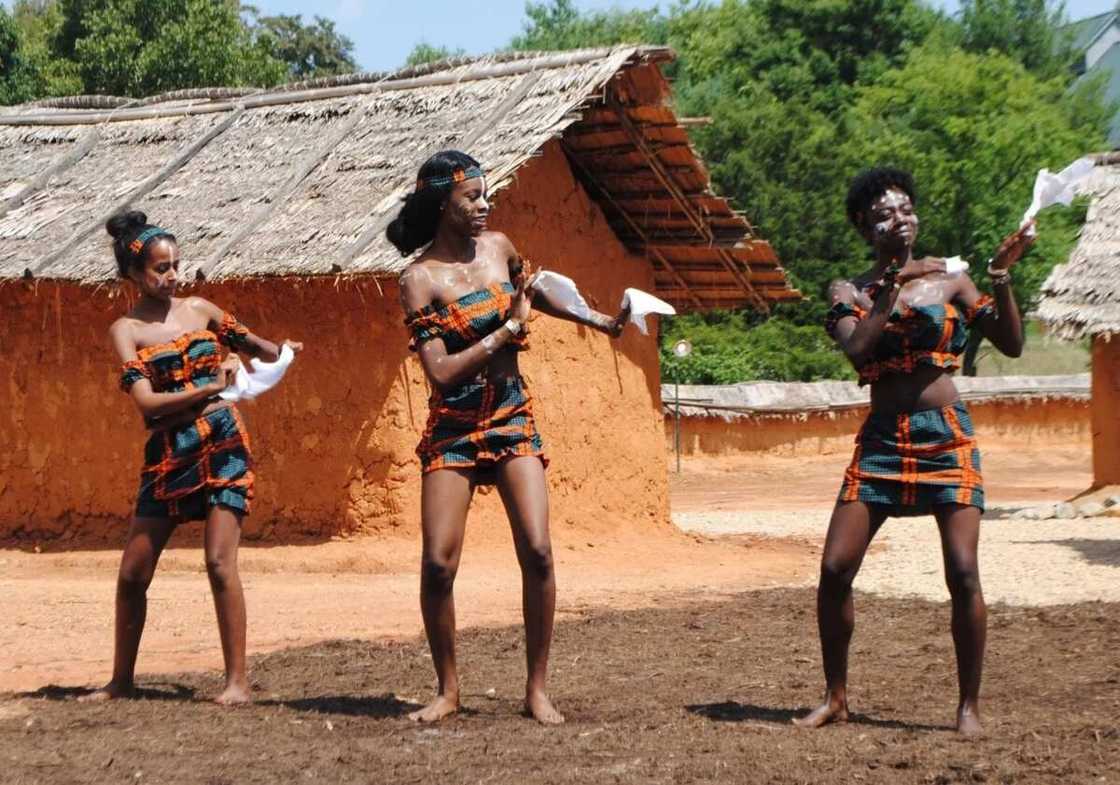
The third month is called Ọnwạ Ife Eke (mid-April — mid-May). During this month (also known as the hunger period), Igbo people must starve in order to please Ani (Ana), goddess of the Earth.
The fourth month is Ọnwạ Anọ (mid-May — mid-June). During this month, farmers begin to plant the yam seeds.
The fifth month is Ọnwạ Agwụ (mid-June — mid-July). This month is considered to be the traditional start of the year. During Ọnwạ Agwụ, you can witness one of the most fascinating parts of Igbo culture — Igbo masquerade festivals.
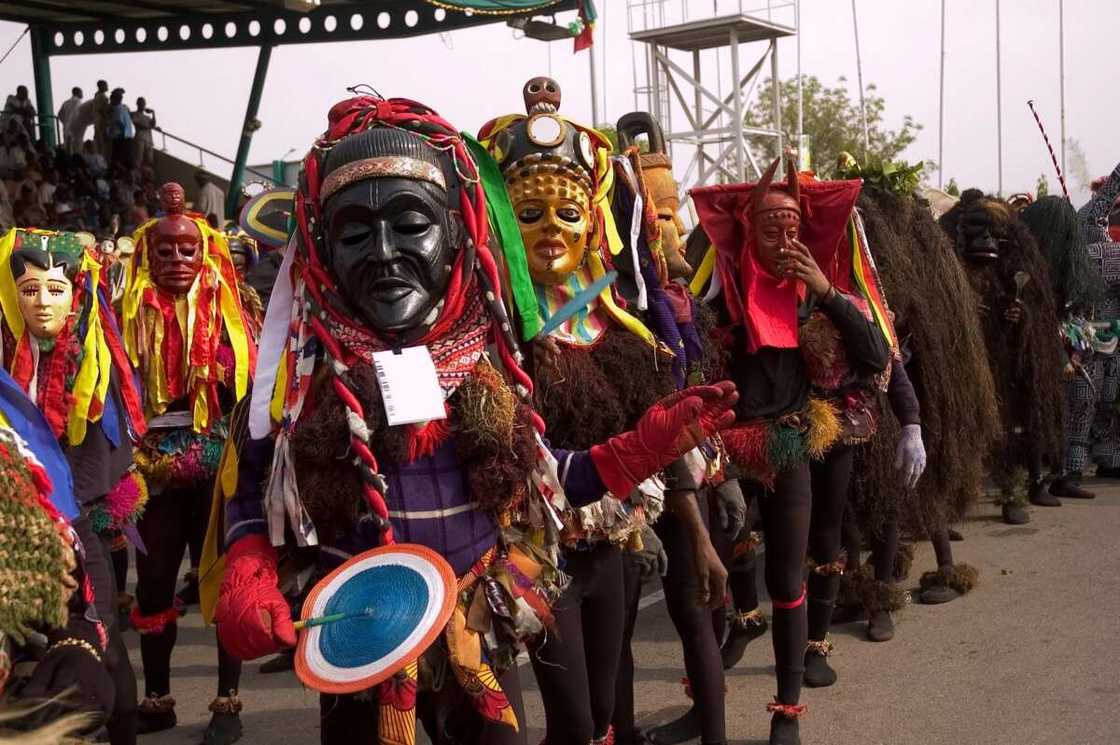
READ ALSO: Igbo masquerade festivals - a stunning cultural tradition of the tribe
The sixth month is Ọnwạ Ifejiọkụ (mid-July — mid-August). It is dedicated to various festivities and yam rituals that praise the Alusi (deity) of yam Njoku Ji. The most famous event of this month is the New Yam Festival.
The seventh (Ọnwạ Alọm Chi) and eighth (Ọnwạ Ilo Mmụọ) months occur from mid-August until September. During these months, people usually harvest the yams.
The ninth month is Ọnwạ Ana (October). It is named after and dedicated to the goddess Ana we have mentioned earlier.
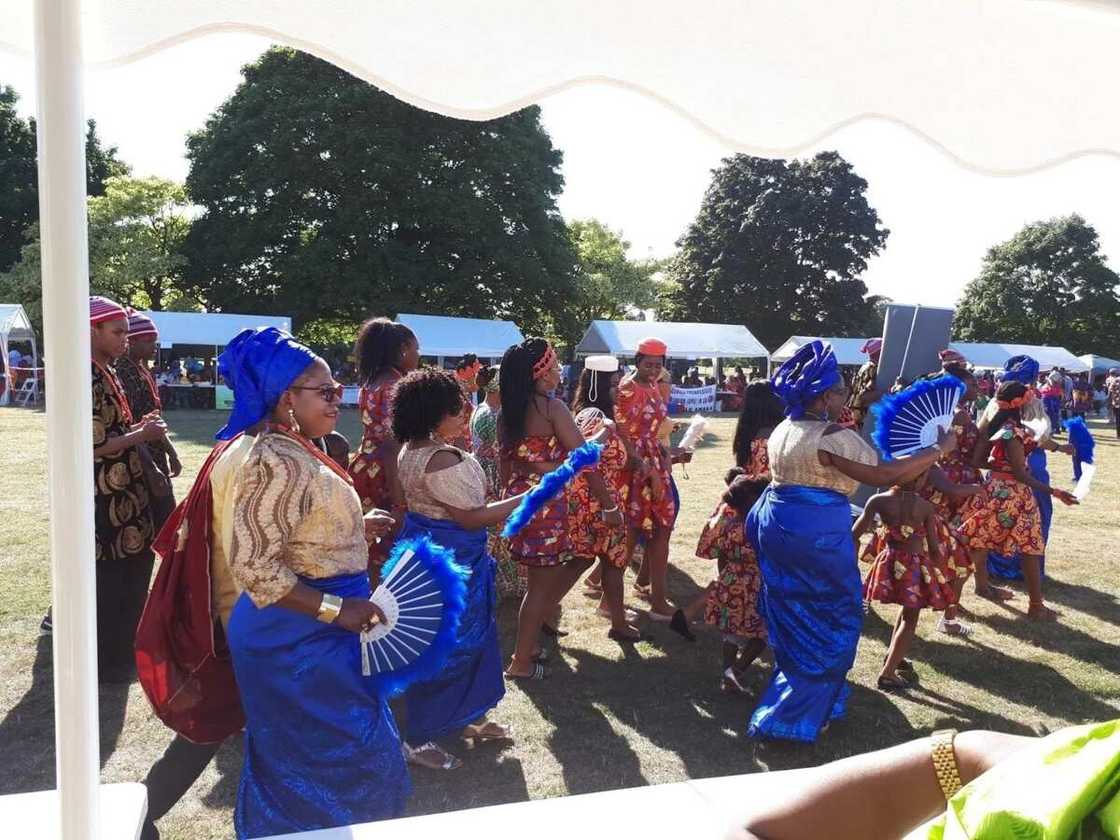
The next three months (Ọnwạ Okike, Ọnwạ Ajana and Ọnwạ Ede Ajana) span across November, December and a bit of January, and host the Okike ritual.
The last, thirteenth month of the Igbo calendar is Ọnwạ Ụzọ Alụsị (January — February). During this month, people give their offerings to all the alusi and end the year. Now you know more about the Igbo months and what to mark in your 2018 Igbo calendar.
Continue reading as look at the various festivals in Igboland.
Igbo holidays and festivals
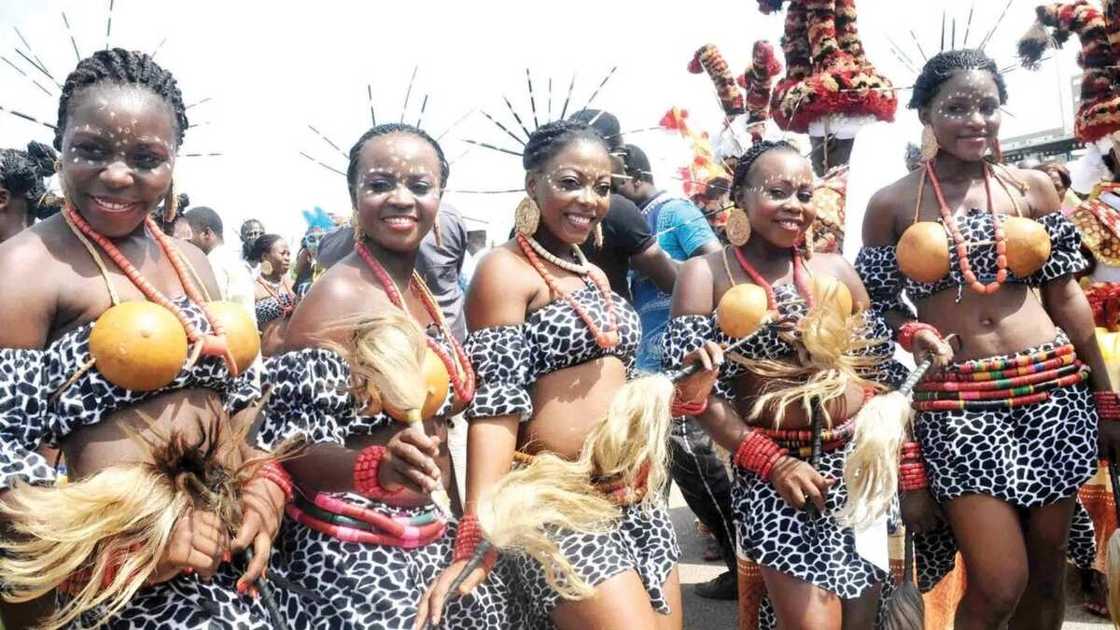
As we have mentioned before, there are many Igbo tribe holidays you should be on the lookout for each year. They are always spectacular and fascinating, and it is truly something everyone has to experience at least once.
For example, the year begins with the Igu Aro festival. During this colourful and festive occasion, the priest is meant to give a speech, in which he announces what is going to happen in the upcoming year.
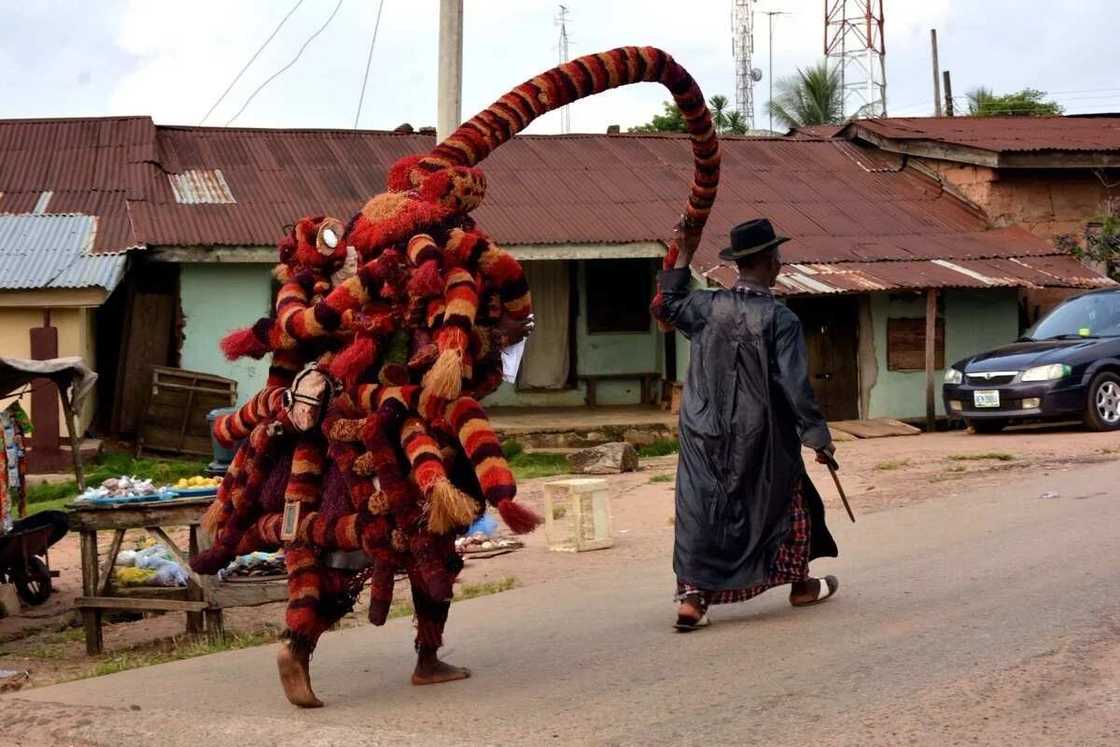
One of the most popular masquerade festivals in Igboland is Mmanwu. During the celebration, initiated members of the masquerade cult (they can only be male) come out on the streets wearing various masquerades that depict different deities. It is always a very loud and vibrant occasion, so it is hard to miss.
Before planting the yams, Igbos celebrate the week of peace as a way to honour Ani, the Earth goddess. During this week, nobody is allowed to curse, quarrel or even say a harsh word. This is meant to ensure the good harvest.
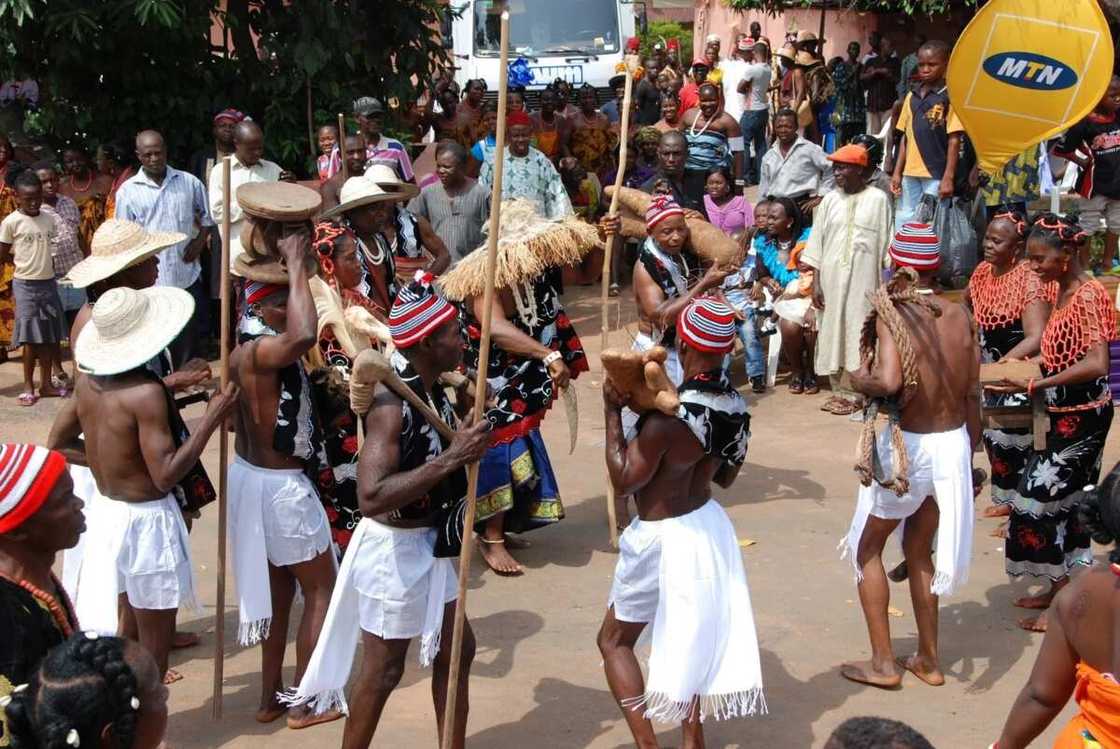
Another important occasion of the year is the New Yam Festival (Ike Ji/Iri ji/Iwa ji). As yams are the most important crop for the Igbo people, it is important to celebrate the new harvest and thank the gods for it. During the festival, one can try various dishes made out of fresh new yams. The festivities also include cultural dances, fashion parades and many other exciting events.
As you can see, the Igbo calendar is filled with various events, so keep your eyes opened for the upcoming festivities in your region. We hope you learnt something new about the Igbo culture!
READ ALSO: Igbo festivals and holidays
Source: Legit.ng





